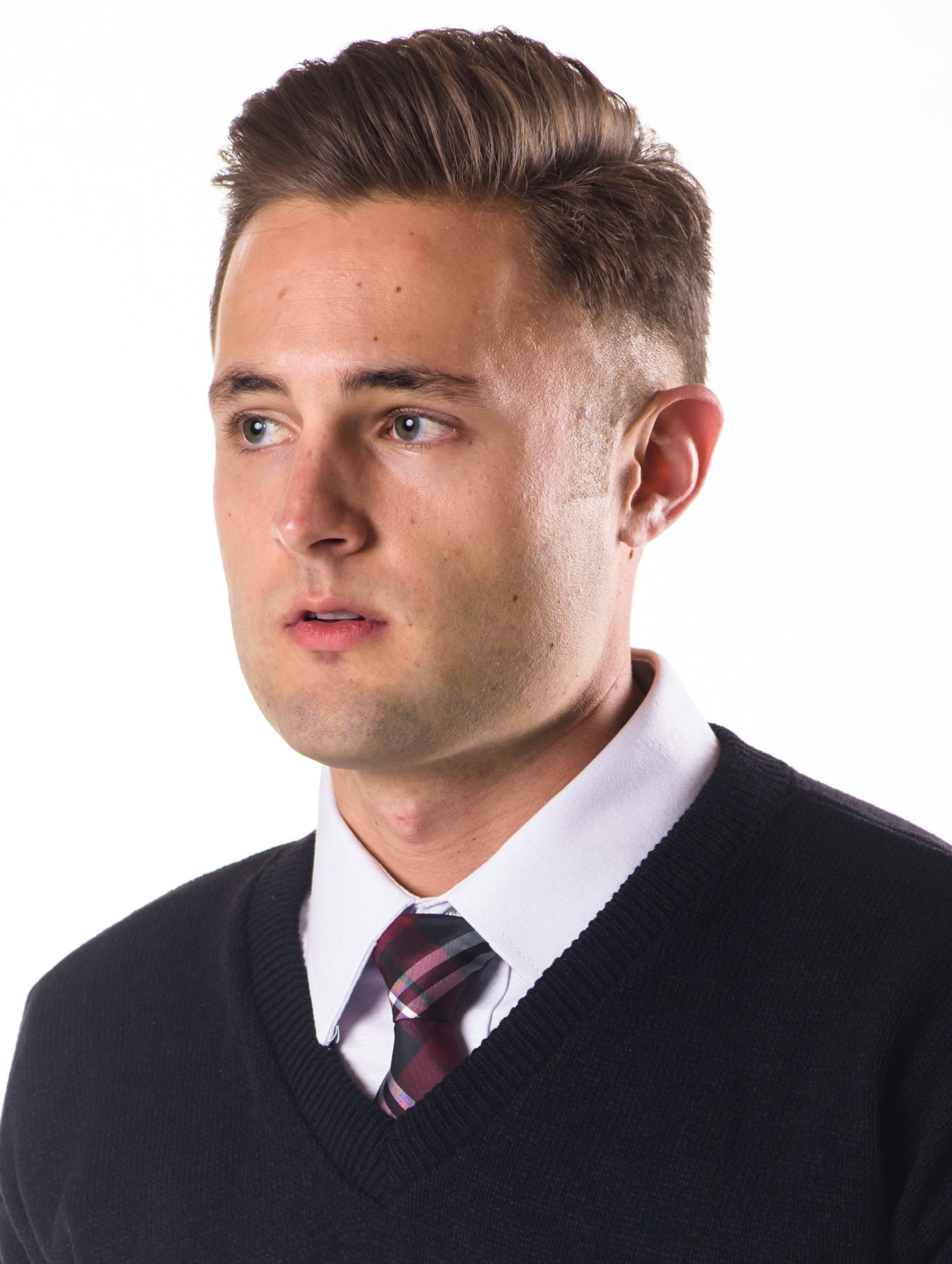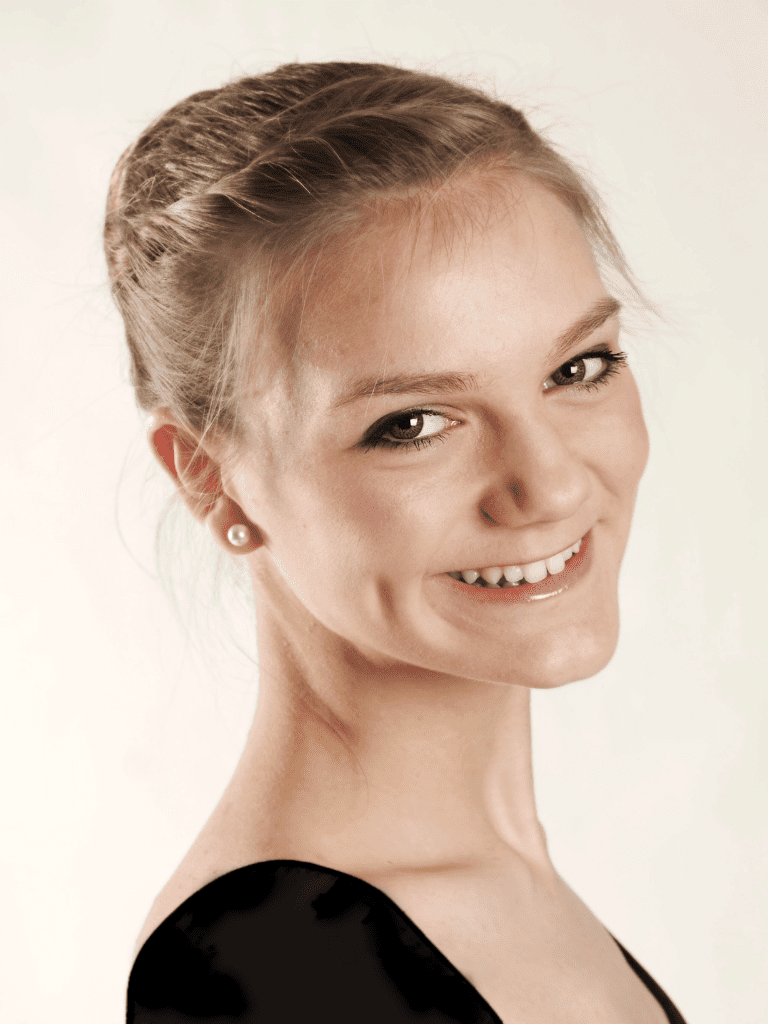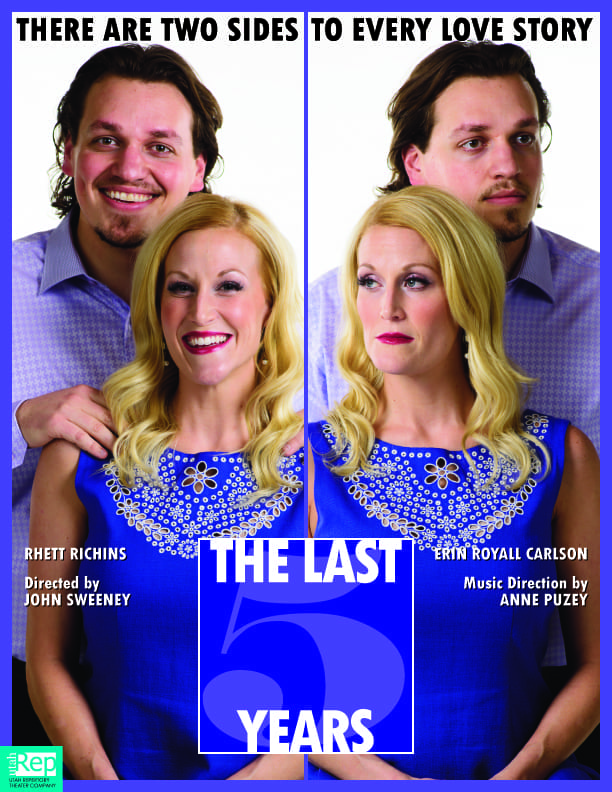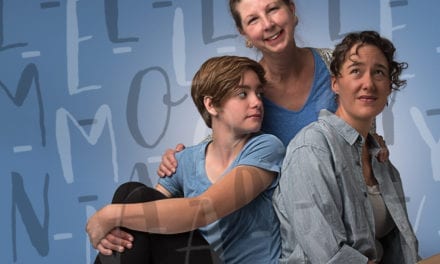
John McKenna plays Peter in Utah Reportory Theater Company’s upcoming production of BARE. Playing January 16-31, 2015. More info at UtahRep.org.
Utah Repertory Theater Company is a new and fearless player in the Utah theatre scene, producing and co-producing never-before-seen-in-Utah pieces like Bonnie & Clyde, Grace, August:Osage County, [title of show], and the upcoming Bare, Jan. 16-31.
Bare centers on a love story on two young men, Peter and Jason, who are roommates at a Catholic boarding school. The story does not shy away from the risk, cost, and consequences a romance considered forbidden can bring. This is especially relevant during a time of bullying awareness, increased marriage equality, and the continued conversation about gay acceptance in Utah.
Actor John Patrick McKenna plays Peter in the upcoming production. McKenna is a Utah native, grew up LDS, served two missions—a four-month service mission in Navoo and two years in Connecticut—attended BYU, and is very open about being gay. This might sound controversial, but McKenna eloquently explains that they are individual parts that make up his whole as a person. “I really am an open book,” McKenna stated at the beginning of our interview. “I don’t have anything to hide, and I am not afraid to talk about my experiences. All these parts of my life contribute to who I am.” McKenna has a candid and kind conversational tone as he explains some of his process and being a part of Bare.
What first brought you to theatre?
McKENNA: I’ve been doing theatre since I was a young child. I grew up watching movie musicals like “The Music Man” and “Annie,” and I knew I wanted to be a part of that world in some way. I remember being in kindergarten and telling my parents that I wanted to be in a show. The audition terrified me and I just ended up singing “Twinkle, Twinkle, Little Star,” but I got cast. Honestly, I probably did around 2-5 shows a year from that point until college. (McKenna has also been a performer at Lagoon and was a part of the BYU Young Ambassadors during his time at the university.)
You are very open about who you are, because of that BYU might seem an odd choice for you. What did you study while you were there?
McKENNA: I attended BYU specifically for the Music Dance Theatre program. It was after my mission, which was really a positive experience—my relationship with God became more personal than ever. Unfortunately, there were a lot of obnoxious and judgmental politics on campus—which really made it a negative experience for me. I tried broadcast journalism for a minute, which turned out to be the absolute wrong thing, and finally landed in the Music Media program, and focused on songwriting and music production.
Bare is considered a very personal and revealing kind of story. What drew you to this production?
McKENNA: Bare has been a favorite show of mine since I first discovered it right after my mission. I had no real outlet or way to be honest with people at BYU at that time, including my family, and a friend shared with me a couple songs from the show. A month later, I had the whole show on my iPod, and it was a way for me to feel I wasn’t alone, that somebody else somewhere had all the same questions and same frustration. I could walk around campus listening with my headphones on, in broad daylight, and nobody knew. Kind of silly to think about it that way, but that’s how it was—and it worked for me. I think the delicacy of the music of Bare resonates with that childlike part of us that fears being thought of as insignificant or wrong. It’s beautiful in the way it communicates with that purity inside, and the innocent process of discovering who you really are.
How would you describe the story?
McKENNA: I think it is a coming-of-age story, and I think that coming of age definitely involves the growing process of how a person perceives and experiences love. I don’t know what the writers intended but my character is 18, and looking back on my own life I don’t think for a second you can find true love in its most complete form by 18—but, a first love can definitely feel very true. I’ve dealt with that on both sides. One guy, I was his first boyfriend, the first time he felt he could really open up, but he was so terrified of being found out, of being hated and rejected by his friends and family, the relationship fell apart. Once he finally came out, though, he was shocked by how loving and and accepting everyone was toward him. Another time, a guy actually found a lot of strength in our relationship and ended up coming out to everyone, including his family, in less than a week. Though different, these were wonderful things to be a part of. I think it’s similar to my character’s path—being surprised by what love can bring, the lessons you learn, even if it doesn’t turn out to be true or perfect.
What is your character, Peter, like?
McKENNA: Quiet, introverted, artistic, smart, and very in his head. He is very analytical and tends to overthink everything. Just like me. We are very similar.
Is it difficult to channel or confront your younger experiences into your character?
McKENNA: I don’t think I have to consciously think about it like that. I have been living some of these experiences for so long it has become second nature. I know what it is like to hide and struggle and fear judgment. But I also know what it is like to decide to not do that anymore. I don’t really have to confront or channel anything like that into my character. It’s just something I experienced for so long it’s easy to feel it again. I don’t think of myself as a great actor, but I think that if I’m doing anything right on stage it is because it’s the truth.
Religion and societal expectation play a large part in the story (set in a Catholic boarding school). How do things considered taboo affect your experience with the play?
McKENNA: If there is anything I have learned from my experiences from the last 15 years dealing with my sexuality, it’s that the conflict and pressure I’ve experienced—and those I’ve dated or been friends with have experienced—are 95% cultural and 5% religious. It is more about social expectations and fear than anything else. I have experienced it myself and seen other people destroyed by fear that they no longer have a place amongst their friends and families because of who they are. I don’t think it matters what religion it is. The culture and social situation is what people have to confront. I think here, surrounded by this Utah Mormon bubble, it is so much harder to discover who you are and who you can become simply because there is always an insane amount of pressure to become something impossibly specific and limiting.
Peter goes through a huge life change through his arc, including letting his mother know about his true identity. What is that like?
McKENNA: Right now, we are still in rehearsal and that is an ongoing process. The key moment for me is when Peter allows himself to address the fear and uncertainty of his situation and see the changes Jason, the boy he loves, goes through. This gives Peter the courage to talk to his mom. He decides not to hide anymore. Peter ends the show having learned that he needs to walk away clean and never look back. He finally comes to terms with who he is and it is like a big sigh of relief. In Peter’s final scene, he lets go of fear. He is in control and free.
What do you find most challenging as an actor during this piece?
McKENNA: I think it is just letting go of all of the overthinking, all the different layers, that make up a character’s decision. Like I said, Peter and I are very similar. I think a lot about what I’m doing on stage and how it affects my character. I want it to be as real and truthful as possible. But, after all is said and done, a great performance is about letting go and just being.
How do you think Utah audiences will relate to Bare?
McKENNA: I think the point of this production of Bare is to attract people who can relate and experience a kind of catharsis, maybe by finding parallels between the show and their own experiences, whether past or present. I think it is very much a show for people who have had to “come out”—in whatever way—under difficult circumstances.
What do you hope audiences take away from Bare?
McKENNA: I hope they have a cathartic experience and reach out to others who they may know who might be struggling and give their love and support. I really feel that finding hope in love and acceptance are what Bare is all about. I want people to share the hope and strength they have with others in similar circumstances; that way, we can all be strong together.
![UTBA-Bare-Banner-WITHOUT-UTAH-REP-LOGO_Layout-1-copy[1]](http://utba.tempurl.host/wp-content/uploads/2015/01/UTBA-Bare-Banner-WITHOUT-UTAH-REP-LOGO_Layout-1-copy1.jpg)






